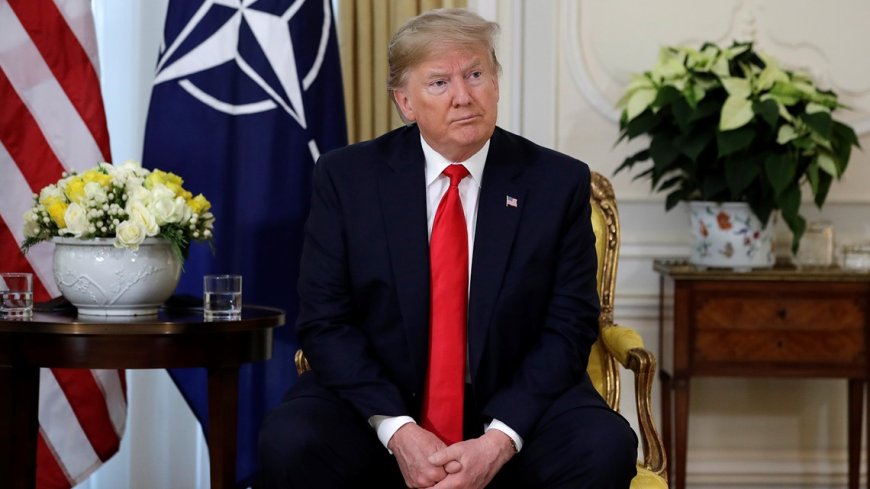A Russo-American Bargain? Trump’s Return, NATO’s Quandary, and Ukraine’s Dark Horizon

By: Sharifi
Two years since the onset of the conflict in Ukraine a war that has defied resolution despite manifold peace overtures. Yet the electoral victory of Donald Trump portends seismic shifts in the geopolitical landscape. Trump emphatically and with a flair for provocation has pledged to end the war in Ukraine with a swiftness unprecedented in international diplomacy---"within 24 hours" he boldly declared during his campaign.
The Economist in its latest editorial argued that an imminent ceasefire between Russia and Ukraine looms large albeit with the distinct possibility of a peace accord being imposed by Trump upon the beleaguered Ukrainian leadership. His strategy is not without forethought as evidenced by the appointment of retired General. Keith Kellogg as his special envoy for Ukraine.
The octogenarian Kellogg has articulated his vision for peace with characteristic precision deeming the war an avoidable crisis born of the Biden administration’s incompétence.
Central to Kellogg's plan is a ceasefire along the frontlines and the establishment of a demilitarized zone. In return Russia would be granted limited sanctions relief with the tantalizing promise of full reprieve contingent upon Moscow's endorsement of a peace deal deemed palatable by Ukraine. Furthermore a levy on Russian energy exports would serve as a mécanisme to finance Ukraine's reconstruction.
Notably Ukraine would retain its claim over occupied territories but the reclamation thereof would be relegated to the realm of diplomacy—a concession acknowledging that any substantive progress hinges on a future “diplomatic breakthrough” likely contingent upon a post-Putin Russia.
In the face of this evolving tableau Ukrainian President Volodymyr Zelensky has tempered his prior intransigeance. For the first time Zelensky has signaled a willingness to cede portions of Ukrainian territory to Russia as a means to secure an end to the guerre. He proposed that the territories remaining under Kyiv’s control could be shielded by NATO’s protective parapluie with future negotiations determining the fate of eastern regions currently under Russian control.
This marked recalibration aligns with Trump’s proposed modus operandi but Moscow’s stance diverges starkly. Dmitry Peskov the Kremlin’s spokesperson has dismissed the prospect of peace talks outright asserting that no viable foundation exists for dialogue between Russia and Ukraine. His rhetoric underscores Moscow’s intransigence casting doubt on the feasibility of any negotiated settlement.
The calculus for NATO and its transatlantic partners is equally fraught. Trump’s rhetoric and policy posture signal a potential retrenchment of U.S. support for Ukraine a development that could embolden Russia and unravel the already fragile solidarity within the alliance. Should the Trump administration acquiesce to Russian demands—lifting sanctions halting NATO’s eastward expansion and neutralizing Ukraine’s aspirations for NATO membership—Moscow stands poised to consolidate its territorial gains and dictate terms from a position of strength.
Such an outcome would leave Ukraine désemparé and at the mercy of a revanchist Kremlin its sovereignty gravely imperiled. For NATO the implications are no less dire: the alliance’s credibility would be called into question its unity tested by internal divisions and its strategic posture weakened.
The specter of Trump’s return to the Oval Office casts a long shadow over Europe’s eastern flank. While his promises of an expedient resolution may resonate with war-weary constituencies the reality of his peace plan—should it come to fruition—threatens to entrench a geopolitical status quo that is inimical to Ukraine’s sovereignty and inimical to the principles underpinning the ordre international.
The impending changement de cap in Washington thus augurs a perilous chapter for Ukraine NATO and the broader liberal order. As the specter of realpolitik eclipses lofty ideals the stakes for the transatlantic alliance have never been higher nor the prospects for Ukraine more grim. Will the West muster the resolve to stand firm or will the tides of expedience sweep away the tenuous bulwarks of international law? The answer may well define the contours of the 21st century.













































